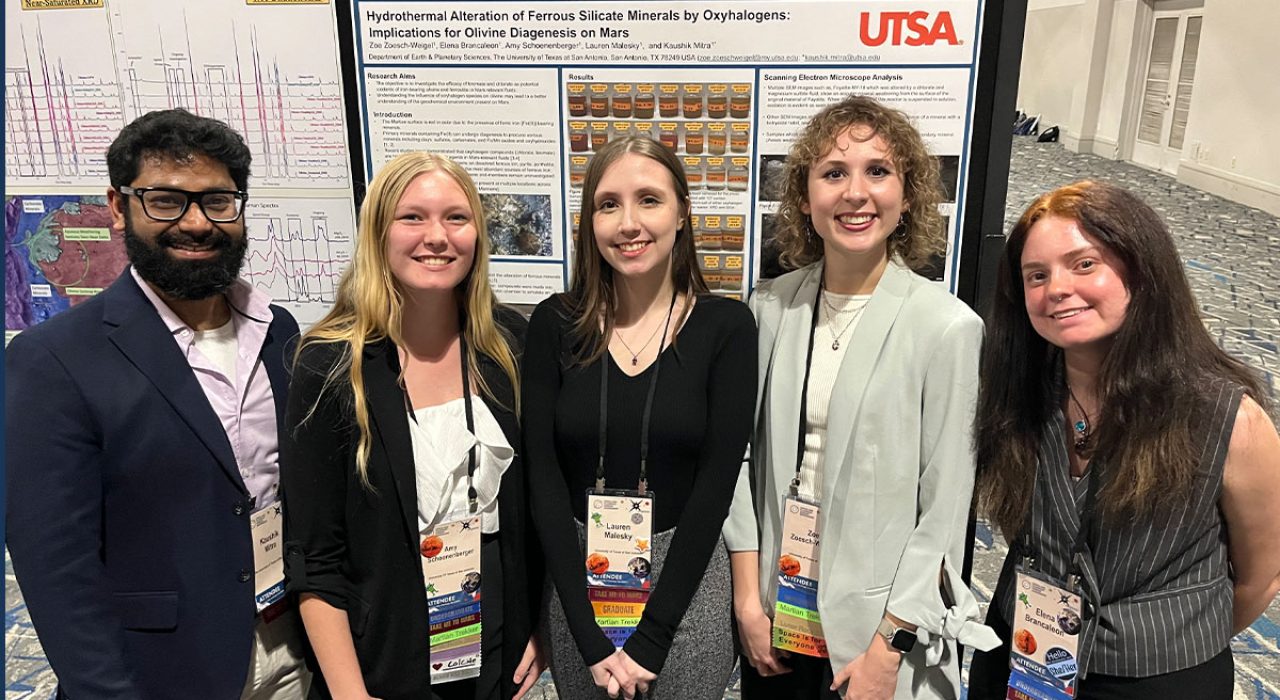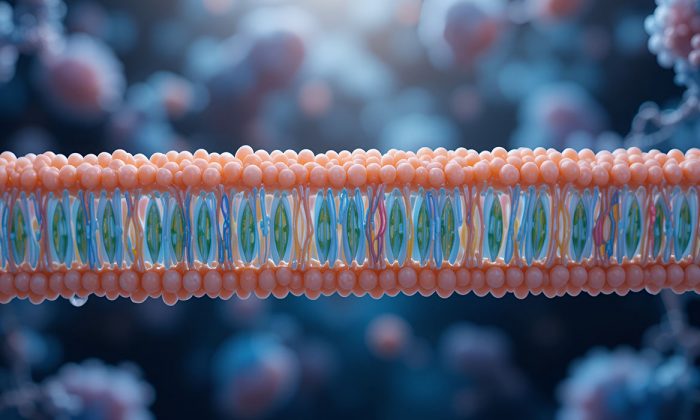A planetary scientist at The University of Texas San Antonio was recently recognized for his expertise in Martian chemistry. Kaushik Mitra, assistant professor of earth & planetary sciences, was invited to author a new paper reviewing a comprehensive report that synthesizes years of research into the chemistry of the planet Mars.
Reviews of Geophysics, a leading geoscience review journal, published Mitra’s paper “Oxychlorine Species on Mars: A Review,” which analyzed a report that brings together more than a decade of research into the discovery of oxychlorine salt compounds on the Red Planet. The report examines how oxychlorine species — mainly salts such as perchlorate and chlorate — form and break down, shedding light on the planet’s past and present geochemistry.
“These compounds have profound implications for understanding the planet’s potential for microbial life and for implementing future successful space missions,” Mitra said.
“This review provides a much-needed synthesis into Martian oxychlorines, which are critical to understanding the planet’s modern environment,” added Mitra. “It serves as a foundational resource for the scientific community by clarifying our current understanding and identifying key questions for future missions.”
Relevant experiments
Mitra’s invitation to review the comprehensive report highlights UT San Antonio’s growing expertise in planetary science. The research conducted by Mitra and his team in the Laboratory for Experimental and Aqueous Planetology is cited in the review, highlighting the university’s role in advancing knowledge of Mars’ surface chemistry.
Mitra and his students specialize in simulating Martian geochemical processes, studying how oxychlorine salts interact with iron-bearing materials to produce the planet’s rust-colored terrain.
“This review is invaluable for my own research,” he added. “It synthesizes all the known information about where oxychlorines are found and their chemistry, which helps me design more accurate and relevant experiments in my lab.”
By identifying key unanswered questions, Mitra said the report provides a roadmap for future research and will help guide both graduate and undergraduate students toward making impactful discoveries at UT San Antonio.
Mitra’s research has direct applications for future space exploration. The dust on Mars, laden with perchlorate, is toxic to humans, so understanding its properties is essential for designing safe extravehicular activity suits, habitats and procedures to protect astronaut health. These salts also could serve as a precious resource for future explorers as they are rich in oxygen that can be extracted for breathing air or could even be used as rocket propellant.
“Harnessing these Martian materials could prove critical to future space exploration,” Mitra said.
“The technology and knowledge we develop to solve these complex problems on another planet — like learning to create oxygen from the soil or neutralize toxic dust — often lead to innovations that benefit society back on Earth,” he said.



